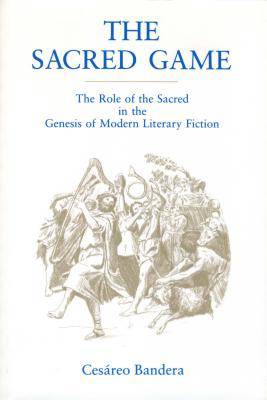
- Retrait gratuit dans votre magasin Club
- 7.000.000 titres dans notre catalogue
- Payer en toute sécurité
- Toujours un magasin près de chez vous
- Retrait gratuit dans votre magasin Club
- 7.000.0000 titres dans notre catalogue
- Payer en toute sécurité
- Toujours un magasin près de chez vous
The Sacred Game
The Role of the Sacred in the Genesis of Modern Literary Fiction
Cesáreo BanderaDescription
The first full-fledged application of the sacrificial model to fiction from the Middle Ages to the modern era.
Cesáreo Bandera contends that we badly misjudge our own historical situation if we believe that the sacred is something that can be left behind or ignored as utterly irrelevant. The Sacred Game argues that the sacred is all around us and its most characteristic manifestation is precisely the "allergic" reaction and subsequent barrier it produces in our "secular" sensitivity as soon as we come in contact with it.
The Sacred Game examines the transition from the Middle Ages to the modern era from a Girardian perspective. It brings light to the weakening of the traditional association of literature with the sacred and its far-reaching consequences, and it studies the logic that governs the emergence of the most characteristic forms of modern fiction, the modern novel and the modern theater. Bandera emphasizes the unprecedented character of what happened to literary fiction during this transition. While the historical facts of the period are well known, Bandera presents them in a new light. The result is a new theory of literary fiction that challenges certain well-established approaches, in particular the nineteenth-century liberal romantic and Marxist approaches.
Spécifications
Parties prenantes
- Auteur(s) :
- Editeur:
Contenu
- Nombre de pages :
- 332
- Langue:
- Anglais
Caractéristiques
- EAN:
- 9780271026046
- Date de parution :
- 15-04-94
- Format:
- Livre broché
- Format numérique:
- Trade paperback (VS)
- Dimensions :
- 152 mm x 226 mm
- Poids :
- 408 g

Les avis
Nous publions uniquement les avis qui respectent les conditions requises. Consultez nos conditions pour les avis.






